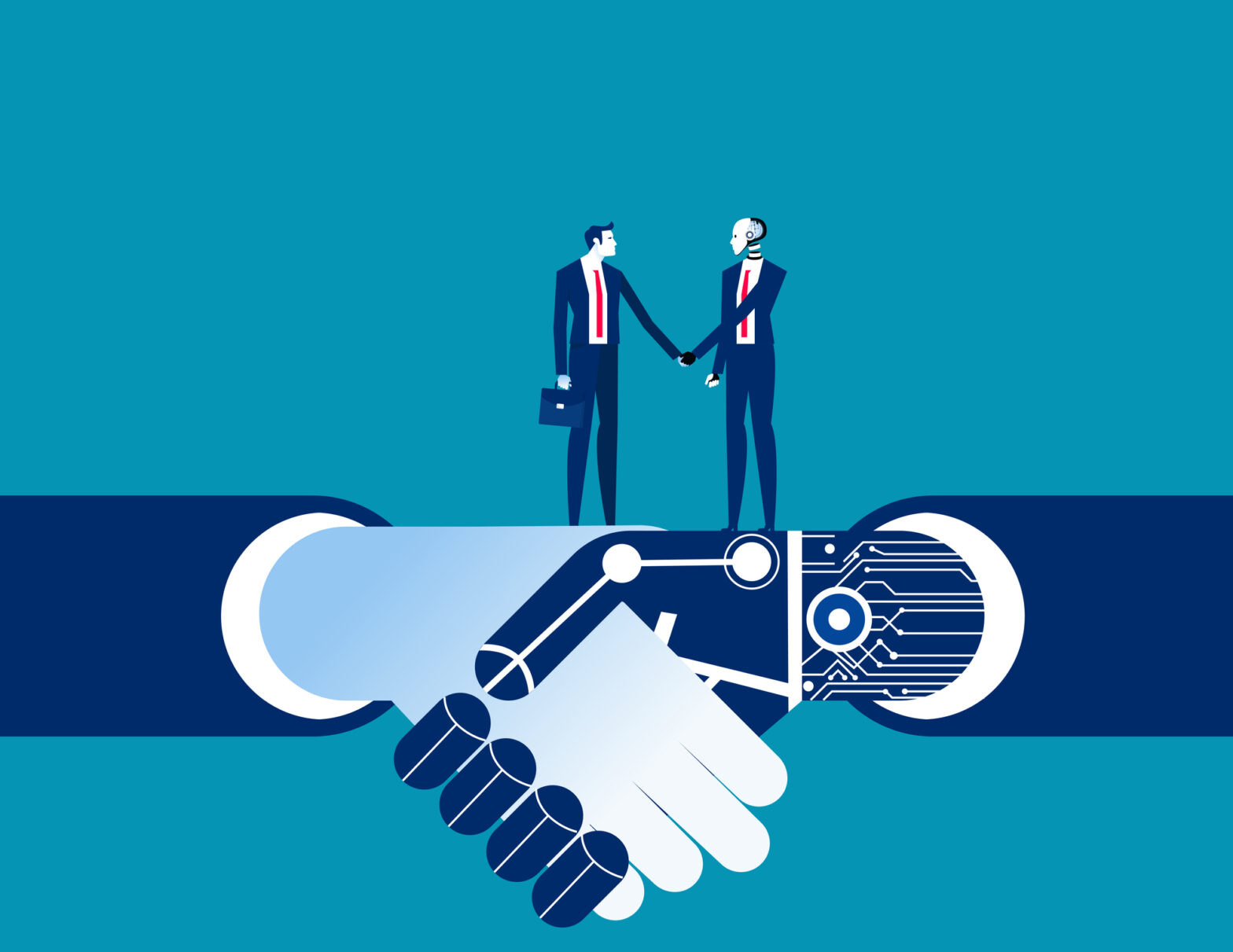The adoption of Artificial Intelligence (AI) is on the increase and it’s becoming so much more than a science fiction fantasy of self-driving cars and hoverboards. When it comes to solving business problems, AI has the capability to meet many of the business challenges faced in recruiting, rewarding and retaining top talent.
Dr Boris Altemeyer, business psychologist and chief scientific officer at analytics firm Cognisess explains how managers and business owners could benefit from a new solution to improve recruitment and management of talent. ‘Recent studies into the costs of bad hires have demonstrated that 40 per cent of new hires fail within 18 months and that the average cost of a bad hire in terms of lost productivity is £29,000,’ he says. ‘Factor this up and this means that the impact of bad hires in the UK is £4.13 billion annually. It’s time to take discussions about AI out of the future and into the boardrooms and management meetings of today.’
He says that the current capabilities of AI for businesses are enormous.
AI can support leaders to make smarter decisions about their people, with people analytics that accurately predict future performance.
And the majority of business leaders agree. In a 2017 IBM survey, 66 per cent of CEOs believed that cognitive computing has the ability to drive significant value in human resources (HR). However, nearly a third (28 per cent) of HR managers said their senior leadership ‘did not see the need’ for such technology.
He said, ‘AI is able to collect, process and analyse huge amounts of data, far more than even the most experienced HR professional will see in their lifetime, Altemeyer says. ‘With AI, we can analyse hiring, workforce and external performance data to provide accurate insights around the best fit for people’s talent and potential.’
AI in recruitment
Altemeyer believes that AI is a powerful tool for reviewing large numbers of CVs and social media profiles, which enables far more candidates to be evaluated for each position.
‘We can even conduct video interviews and use AI to pick up micro facial expressions that would be invisible to the human eye. Measurements can also assess cognitive attributes, emotional intelligence, health & wellbeing, personality, behaviour, culture and team fit, as well as other core skills and competencies,’ he adds.
Altemeyer says that by removing any data that relates to age, gender or ethnicity, AI has the benefit of being able to identify candidates for a role that are more diverse by eliminating both conscious and unconscious bias from the process. ‘By democratising recruitment we will be increasing social mobility as well as enabling diversity in our organisations. That’s because AI gives us a far more objective method of assessing candidates and a better way to demonstrate performance than stating that every candidate needs a 2:1 or above from a Russell Group University.
‘With AI we can open doors for people who may otherwise not even have reached interview stage.’
Read more on AI in HR
The rise of the AI recruiter: is HR tech the next to challenge human intuition?
From AI recruiting to Millennial bosses: 2018 talent trends revealed
Cognition versus intelligence
The sector is growing as a $7.7 million investment from Summa Equity in people analytics firm Qlearsite – interviewed by GrowthBusiness – earlier this year has shown.
Altemeyer continues, ‘We are well versed in understanding how to measure our Intelligence Quotient (IQ). However, research has shown that IQ remains fairly static over time and therefore it fails to capture the most important human element – our ability and desire to grow and improve.
‘A better measurement is to understand our cognitive abilities. These are the mechanisms of how we learn and remember, and importantly cognition can be trained and improved.’
He says combining AI with neuroscience and advanced computer science means human are now equipped to truly understand a person’s brain function well enough to know how they think.
‘So, rather than asking a person to qualify whether they think they would be good at something, they can be tested to find out where they have the actual potential to be good. This opens up the use of AI to further enhance recruitment, employee performance and career learning & development. By providing an even more accurate and scientific understanding of peoples’ true talent and potential.’
Getting the right people into the right roles, where they are not only successful but also fulfilled and happy, will also increase productivity and reduce churn. We can now use AI to identify training and development needs or to pinpoint individuals who might have the potential to be good in a new role, even if they don’t currently have the experience. This is going to be highly important in the future, as technology will eliminate some roles while creating opportunities in new fields.
AI creates jobs
AI also has the potential to create jobs that require uniquely human soft skills. A report produced by PricewaterhouseCoopers (PwC) estimates that AI will create 7.2 million new jobs in the UK by 2037 – just in the healthcare, science and education sectors. Re-skilling employees in areas where they already have innate abilities will be crucial and will help HR teams to address increasing fears about the impact of automation on jobs.
Of course, while AI is in its early stages we must continue to monitor the data that we use very carefully and evaluate the outputs in terms of how much sense they make. The issues that worry us about the increasing capabilities of AI systems and the ‘rise of the robots’ are the same questions that humans have been wrestling with about ourselves.
Augmentation not automation
In the future we will develop the capability to teach AIs the ethics and values that we have as humans. There is of course a risk that mistakes will be made, but as AI gets better so will we. Better at spotting and correcting anomalies in the outcomes that AI presents us with, and better at identifying and eliminating any bias that is being fed into the machine.
In the business world, there are few places better suited to combining human and artificial intelligence than HR departments. We are already looking at a very near future where AI supports:
- Individuals – to pursue the right career for them, wherever they are in their professional life. From job seekers and students to career changers exploring their options (more relevant now than ever with the increasing retirement age).
- Organisations – to identify potential, predict and fill skills gaps, develop and retain staff to maximum effect. Transitioning workforces towards a more digitally enabled future.
Most importantly, AI in HR is an opportunity for augmentation – not just automation. Whilst there will be some inevitable replacing of mechanical and labour inefficient tasks in the workplace, the bigger opportunity will be to combine data, science and machine learning with human qualities to achieve a higher level of human performance and productivity that has not been possible until now.







